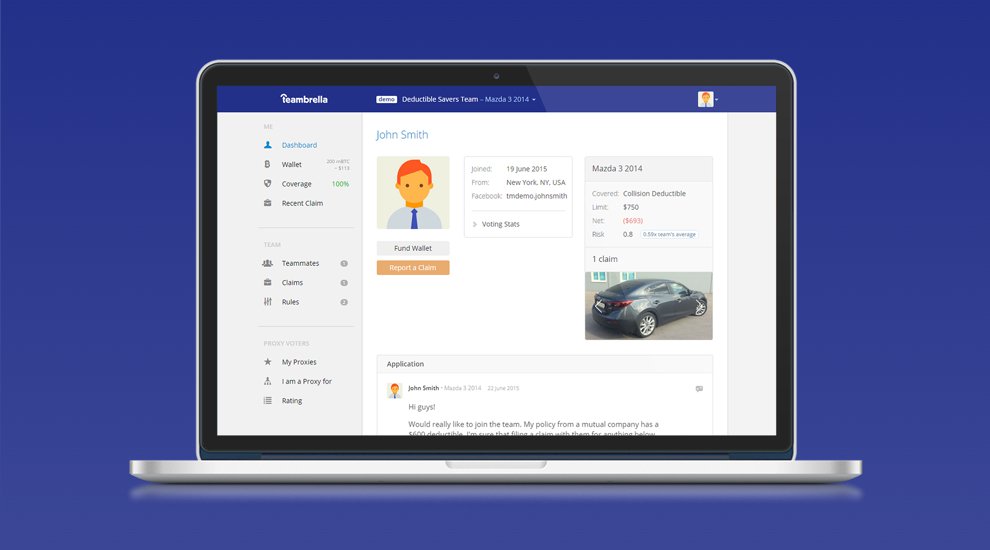Bitcoin-Based, Peer-To-Peer Insurance Company Teambrella Releases Pre-Launch Demo Version
Teambrella, the innovative Bitcoin-based peer-to-peer insurance company, recently released a demo-version of its service. In anticipation of the product launch, anyone can now experience what Teambrella will look like and test how it will work.
To gauge the process on Teambrella, Bitcoin Magazine spoke with Alex Paperno, one of three developers behind the project.
The demo’s purpose “is somewhat similar to a Minimum Viable Product: to gather input from potential users which we use to improve the platform before we launch,” said Paperno.
Teambrella is set to become the first decentralized bitcoin-based insurance company, where users insure each other. While Teambrella itself is not decentralized, Bitcoin’s multi-signature addresses allow users to manage the entire flow of funds in a trustless and decentralized manner. Users retain strong control over their own money at all times, while reputation systems incentivize everyone to pay each other out when needed. If Teambrella gains traction, (semi)professional insurance agents may even emerge within the system, to decrease potential fraud and streamline the insurance process for all participants.
Initially, the Teambrella platform will allow for two types of insurance. One is deductible supplement coverage for collision insurance. This covers the out-of-pocket expenses customers have to pay unless they take on a relatively expensive insurance policy. The other is pet insurance, which will cover veterinary bills. The available types of insurance will expand in the future, but the Teambrella development team believes it’s best to keep the options relatively basic at first.
“We don’t want to allow users to create any possible type of insurance right from the start,” Paperno explained, “because a lot of types can’t be easily handled without making some changes to Teambrella. An obvious example would be an insurance that insures against natural disasters. These would require additional reinsurance for cases when a lot of ‘policy holders’ — teammates in our case — have insured incidents at the same time.”
Demo Version Features
The demo version of Teambrella lets users play around as the fictional user “John Smith,” who represents part of a team for deductible supplement coverage. Although the demo version uses play money and includes only fake team members, the platform is fully operational. Testers can open claims, vote on claims by other users, issue proxy votes to team members and do just about everything else that Teambrella will enable.
With the launch of the demo, most of the work on the technical side of Teambrella has been completed. The development team will now focus on polishing the user interface and work on fixing any bugs that may be found. Additionally, the open-source clients with which users will connect to Teambrella’s servers should be uploaded to GitHub next month.
The Teambrella team also intends to build a bit of a community before they launch and potentially garner investments; mostly in order to promote the project.
“For a platform like Teambrella, user participation is crucial,” said Paperno. “It’s the classic chicken-and-egg problem: joining an insurance like this only makes sense if there’s people to insure you. We’d therefore like to build as big a community as we can before we launch, so Teambrella won’t flop when it’s finally released. We’re offering lifetime fee discounts to anyone who signs up for our newsletter, and we’ll launch Reddit, Slack and consider.it pages soon. And of course, we hope that those who are interested in Teambrella also invite their friends and family: their potential future teammates.”
For a more elaborate explanation and extra information, seeBitcoin Magazine’s previous article on Teambrella.
The post Bitcoin-Based, Peer-To-Peer Insurance Company Teambrella Releases Pre-Launch Demo Version appeared first on Bitcoin Magazine.



